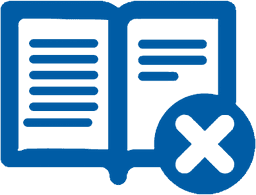Sandrine and I had been drawn to Berlin by the kind of opportunity you get maybe once in a lifetime in journalism-a shot to break a story that could have serious implications around the world. It felt kind of fitting that our taxi from the airport to the city center skirted within a few kilometers of the Stasi Museum, a complex that once housed the apparatus of the East German secret police, "The Sword and Shield of the State." This investigation, if we decided to undertake it, would have to contend with swords and shields wielded by a dozen or more very defensive state actors and by a billion-dollar private technology corporation operating under the protection of its own very powerful national government.
The taxi ride was the last leg of a trip that seemed to portend a rise of obstacles. The limitations put in place during the latest wave of Covid-19 had laid waste to familiar routines. The simple two-hour trip from Paris to Berlin had taken triple that, and included a connection through the food desert of an airport in Frankfurt, and the indignity of German soldiers shoving cotton swabs up our nasal cavities before we were allowed to exit the airport in Berlin.
By the time Sandrine and I stumbled into our sleekly modern and well-lighted little rented flat above Danziger Strasse, we were both so knackered that dark-of-the-night questions were
already preying on us. Was this really the best time to dive into another difficult and all-consuming investigation? Our nine- person team at Forbidden Stories was deep into its third major project in just three years; the current investigation, the Cartel Project, was already shaping up as the most dangerous we had done to date. And we still had a lot of work to do to be ready for publication. We were developing leads on the most murderous drug gangs in Veracruz and Sinaloa and Guerrero, on the chemicals needed to produce the supercharged opioid fentanyl, which were being trafficked into the country from Asia, and on the lucrative gun trade filling the cartels' private armories (as well as the bank accounts of gun manufacturers and private gunrunners in Europe, Israel, and the United States).
We were essentially picking up reporting threads left unfinished by a handful of brave Mexican journalists who had been killed, most likely by assassins from the local drug cartels whose violent and criminal activities the reporters had been investigating. Outside of active war zones, Mexico was and remains to this day the most dangerous place in the world to be a journalist committed to telling the truth about bad guys. More than 120 journalists and media staffers had been killed in Mexico in the first two decades of the twenty-first century. Another score or so had simply disappeared without a trace.
This meant the Cartel Project tied seamlessly to the mission of Forbidden Stories: we aim to put bad actors and repugnant governments on notice that killing the messenger will not kill the message. Which means collaboration is an indispensable tool. There is strength and safety in numbers. The more journalists who are working the story, the more certain it is to see print. We had begun inviting into the Cartel Project reporters from our trusted media partners, including Le Monde in Paris, the Guardian in London, and Die Zeit and Süddeutsche Zeitung in Germany.











